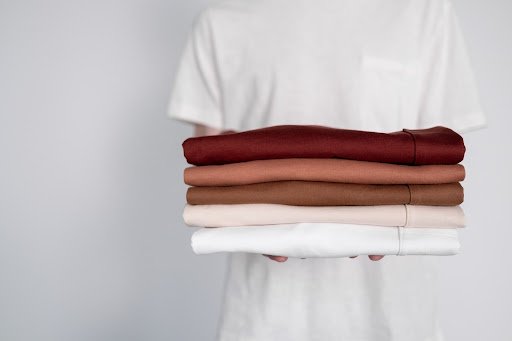
The Multi-Purpose Role of Polymers in Laundry Detergent
One Ingredient To Support Fabric Care & More
October 26th, 2023
4 minutes
Home Care
By Chantal Bergeron
Download Free Homecare GuideThe Multi-Purpose Role of Polymers in Laundry Detergent
Today’s laundry detergents rely on a long list of ingredients to serve varying purposes: surfactants, builders, sequestrants, dispersants, enzymes, and more. A multifunctional ingredient like a polymer can therefore be a powerful ally, streamlining and simplifying formulations by serving multiple roles at once.
The role of polymers in detergents is a little bit “jack-of-all-trades”. A good polymer offers sequestrant support and boosts the effectiveness of other ingredients thereby keeping minerals dispersed in washing liquid. Polymers became an effective replacement for phosphates, an older ingredient that primarily acted as a chelant, back in the 1990s when phosphates were banned for environmental concerns.
The Perfect Polymer Is Multi-Purpose & Biodegradable
Although phosphates are long gone, many of today’s detergent polymers environmentally safe. Common conventional polymers like polyacrylates act as multi-purpose chelators, but require higher concentrations to see significant results and are not considered biodegradable. Eco-minded brands and consumers are again looking for alternatives that can add to the detergent’s cleaning power while protecting the planet and our waterways.
Soltellus™ polymer fills the role of a polyacrylate alternative perfectly. Based on the biodegradable polyaspartate polymer, Soltellus supports multiple roles while helping achieve the three main goals of a successful detergent:
- Performance — It fights and prevents stains, even in cold and hard water conditions, while also keeping fabrics and colors bright.
- Sustainability — The polyaspartate polymer biodegrades in the environment. At the same time, strong cleaning performance in cold water helps end users conserve energy. Polyaspartate is also effective in smaller quantities than other common detergent polymers, allowing you to do more with less.
- Cost Savings — There’s an opportunity to save on costs with decreased loading of your polymer and chelant, since Soltellus performs both functions with lower concentrations than alternatives.
Soltellus Fills 4 Roles of Polymers In Laundry Detergent
This water-soluble, multi-functional polymer adds significant value to your biodegradable detergent by reducing the burden on other ingredients. Here are the laundry capabilities Soltellus supports:
Stain Fighter
Soltellus has been shown to greatly enhance the stain fighting powers in laundry products. It contributes to both stain removal and stain prevention, with the capacity to outperform category leaders. In a 5% formulation, Soltellus outperforms polyacrylate on many types of stains, including:
- Locust Bean Gum (mannanase)
- Yolk (protease)
- Blood (protease)
- Grass (protease)
- Olive oil (oily)
- Red lipstick (oily)
Oily stains and iron-containing stains like blood are known to be difficult to remove, which makes Soltellus a valuable addition to the overall stain-fighting power of your detergent. Even a 1% formulation of Soltellus outperforms polyacrylates on these persistent types of stains in cold water conditions. Remarkable cold water performance opens up new opportunities for brand messaging and energy conservation by consumers.
Fabric Care Enhancer
Deposition of iron and manganese is known to cause yellowing on fabrics. Other minerals and particulates can also build up on fabrics in the wash, gradually causing discoloration or changes to the feel of the fabric as well as attracting stain deposition.
The properties of Soltellus help to preserve fabric colors and quality so that clothes stay bright, bold, and soft, even after many wash cycles. By preventing particles and minerals from depositing or building up on fabrics, Soltellus inhibits the development of graying, yellowing, dinginess, and rough or stiff textures.
Water Softener
Soltellus performs very well in both soft and hard water, matching the leading brand’s results on most stains in hard water conditions. This performance is largely due to the powerful chelating effects of the polyaspartate polymer, which binds hard water ions, disperses minerals, and softens water.
Chelants are sometimes referred to as sequestrants, but the meaning is the same and Soltellus is ideal in this role. It outperforms other common chelators at removing dissolved minerals such as calcium and iron. Including Soltellus opens up the potential to displace or reduce chelant loading in your biodegradable detergent.
Whereas precipitating builders — like sodium carbonate — actually cause minerals to leave the solution and deposit as insoluble compounds on fabrics and laundry equipment, Soltellus keeps the minerals in the wash water where they can be safely rinsed down the drain.
Any laundry detergent with polymers that reduce and stabilize water hardness will also enjoy a boost in the effectiveness of all other ingredients.
Surfactant Support
The main cleaning agent in a detergent is the surfactant, a chemical that alters the properties of water to help it clean. Testing has demonstrated the ability of Soltellus to improve the cleaning power of surfactants.
In essence, a surfactant makes water “wetter” by lowering the water’s surface tension. Surfactants also make water and oils more compatible and able to mix through a function called emulsification. By binding minerals that would otherwise bind to detergent, making them inactive, Soltellus helps with cleaning in all water conditions.
Connect With the Detergent Polymer Experts at Lygos
Soltellus provides true efficiency, serving multiple roles with one eco-friendly, biodegradable ingredient. Get in touch with the team behind the multi-purpose Soltellus to discuss how it can streamline and simplify your formulation or learn more about our solutions.